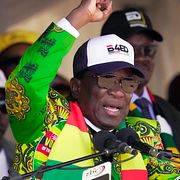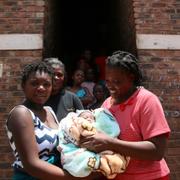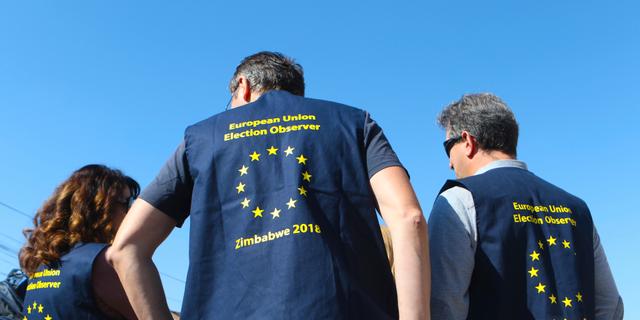
Zimbabwe's 80-year-old president, Emmerson Mnangagwa. Tsvangirayi Mukwazhi / AP
Political situation in Zimbabwe
Electricity promises are pouring in ahead of the presidential election in Zimbabwe
The people of Zimbabwe - which has been hit hard by corruption, inflation, poverty and unemployment - go to the polls this week. On August 23, it is time to choose the country's highest representative, and in the heavily exposed country, basic things are on the wish list, several media write:
Land to build homes on, infrastructure such as functioning roads and sewers and an end to the random power outages.
Twelve candidates are standing in the presidential election, which is mainly seen as a duel between two favourites:
Incumbent President Emmerson Mnangagwa, 80, who took over from Mugabe, and who promised to overhaul electricity in the country. And his main competitor Nelson Chamisa, 45, who made similar election promises and promised to invest the equivalent of SEK 40 billion in power plants.

Archive image. A newborn baby in the Harare suburb of Mbare. Tsvangirayi Mukwazhi / AP
Lovemore candidate in the election - and example of name trend
Zimbabweans are known for having some of the most original names on the planet. And one of the examples is even standing in the presidential election: Lovemore Madhuku.
Hardlife, Beatthem, Norest, Nomatter, Luckmore and Happyson are six other names that appear in Zimbabwe.
According to Charles Pfukwa, naming expert at Binduary University, many Zimbabweans want to make a statement when naming. And the tradition has persisted for many years. When the country became independent, for example, many parents chose to name their children Freedom and Liberty.
And quirky names are a winning feature, according to Memory Chirere, a university English teacher in Zimbabwe.

European election observers in Zimbabwe at the last election. Tsvangirayi Mukwazhi / AP
State media sues European election observers for bribery
With less than a week left until the parliamentary elections in Zimbabwe, rumors are spreading about a bribery scandal involving European election observers, writes AFP. It is the state newspaper The Herald Daily which claims that the EU observers gathered journalists and handed out alcohol and food vouchers, to influence what they should write.
Fabio Massimo Castaldo, responsible for the delegation, rejects the information as "completely fabricated".
- This reflects continued efforts to undermine our mission as credible election observers, he says.
Inga kommentarer:
Skicka en kommentar